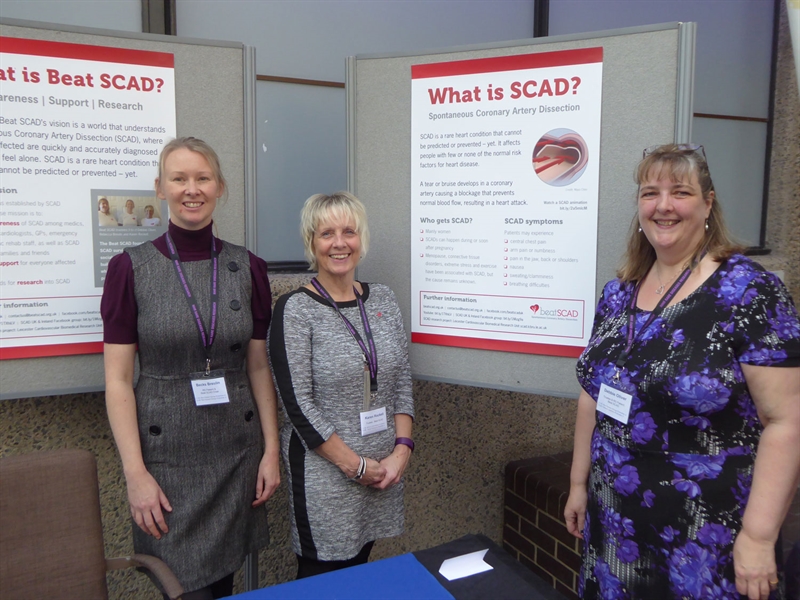The recent Rare Disease Patient Day, organised by the National Institute of Health Research (NIHR), took ‘Think Research’ as its theme. Research is key to identifying the causes of rare diseases, but for small patient groups, it is often hard to get research projects up and running.
A joint collaboration between NIHR Rare Diseases Translational Research Collaboration (RD-TRC) and NIHR BioResource – Rare Diseases, the aim of the day was “to provide insight and training in aspects of rare diseases research, as well as information-gathering and networking opportunities”.
Beat SCAD joined many other delegates, patient groups and charities to attend sessions and network with each other.
Simon Denegri, NIHR National Director for Patients and the Public in Research and Chair of Involve, gave the introductory address, ‘Think Research, Think Public’, focusing on the importance of patients and public being involved in research.
Four training sessions covered the key aspects of taking part in research from a patient’s perspective. The session on running a successful patient group was led by Martine Walmsley, Chair of PSC Support and patient representative for the Gastrointestinal Theme on the NIHR RD-TRC Patient Advisory Group (PAG), Rebecca Breslin, Chair of Beat SCAD and patient representative for the Cardiovascular Theme on the NIHR RD-TRC PAG, and Eva Bearryman, Communications Manager at Eurordis.
Martine and Rebecca discussed the challenges of setting up and running a rare disease patient group, considerations for progressing to charity status and how patient groups can help to influence research – each giving examples and tips from their personal experiences and interacting with the audience to discuss their experiences. Eva gave an overview of Eurordis initiatives and discussed how effective engagement, branding and use of social media can help raise awareness of a patient group. Eva emphasised the power of sharing patient stories – a key part of raising awareness of a rare disease.
Other training sessions covered ethics, patient information leaflets for research studies and how to read study protocols.
In the afternoon, there was an opportunity for delegates to pose questions to an expert panel on issues facing rare disease patient groups.
Beat SCAD also had a display stand at the event, where trustees Karen Rockell and Debbie Oliver introduced SCAD to other delegates.
One of Beat SCAD’s aims is to raise awareness and attending events such as this helps to spread the word. Thanks to the NIHR for organising the event.

